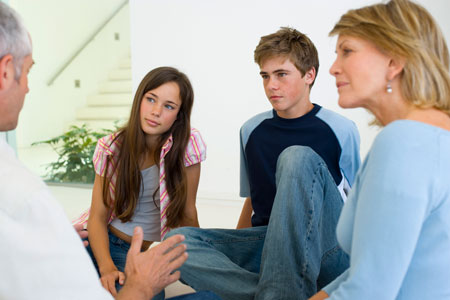“How do I tell my 10-year-old daughter that I have cancer?”
“What do I say to my 12-year-old grandchild when my hair begins to fall out?”
“How much should I tell my 7-year-old son about why I see the doctor so often?”
These are just a few questions adults have about addressing the subject of cancer with the special children in their lives.
Many resources are available to help parents, grandparents and other adults explain a cancer diagnosis to children.
Follow these tips for talking to children about cancer:
- Prepare what you are going to say in advance.
- Talk honestly with children about cancer. It will help them feel safe.
- Consider your child’s age, and use age-appropriate language.
- Assure children that they did not cause the cancer.
- Reassure children that they cannot catch it. Cancer is not contagious like a “cold.”
Finally, tell them that they can help you through this journey. Examples of ways they can help include assisting with small chores around the house, drawing you a picture or giving you a hug.
Enlist help from others
Support groups and other programs may offer young family members a place to channel emotions and share concerns with other children of similar age who are experiencing a loved one’s cancer diagnosis.
CLIMB® (Children’s Lives Include Moments of Bravery) is a six-week program that gives emotional support to kids who have a parent or other loved one with a cancer diagnosis.
“’What I am going to tell my children?’ can be one of the hardest questions for an individual after receiving a cancer diagnosis,” said Cynthia Nelson, R.N., and survivorship coordinator at Marshfield Medical Center in Marshfield. “In each of the weekly CLIMB® sessions, we explore different emotions to help the kids deal with feelings such as fear, anger, sadness and confusion. It will help the children feel less isolated or alone and encourage a safe place to share difficult feelings.”
Books and other tools also are available to help. Consider reading “When a Parent Has Cancer: A Guide to Caring for Your Children,” by Wendy Schlessel Harpham, M.D. Additional online resources include:
Children’s Treehouse Foundation

